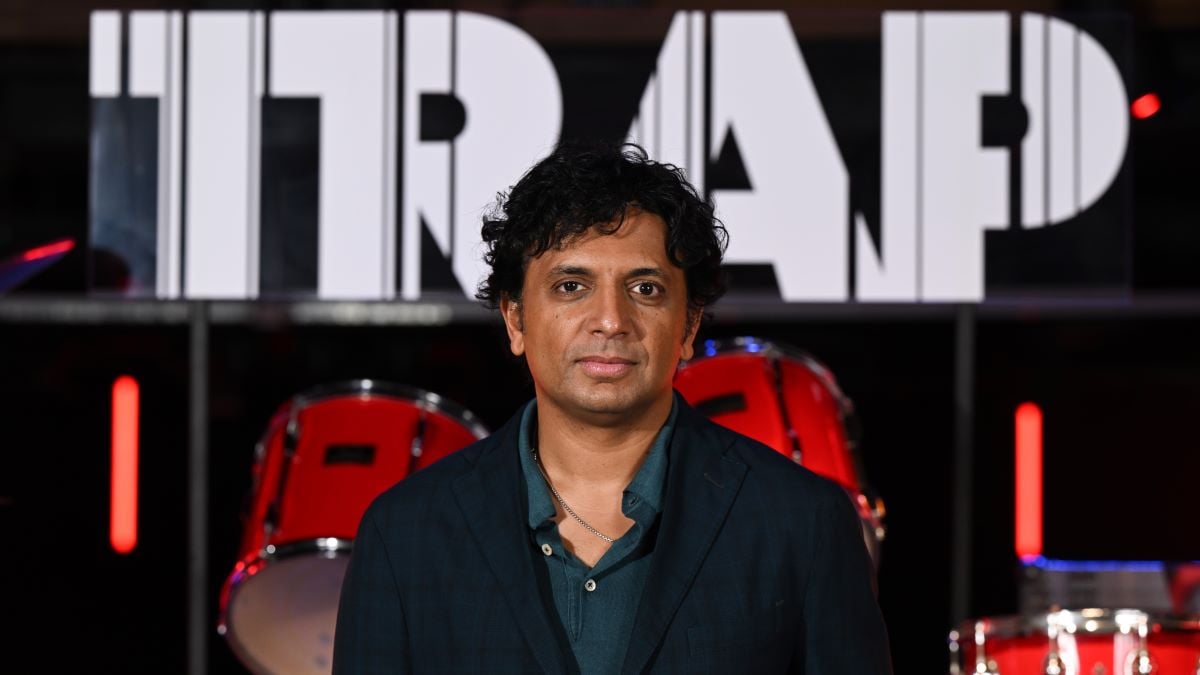Anything — be it the good, the bad, the scathing, the worship-adjacent, and everything in between — that could possibly be said about a filmmaker has probably been said about M. Night Shyamalan at some point. His journey has been one of utter insanity, once being dubbed the next Spielberg before going on to make 2010’s Avatar: The Last Airbender.
Shyamalan will never not fascinate, nor will he ever not split opinions. But it’s nevertheless safe to say that the filmmaker is at his best when he’s working with original material rather than adapted material, the latter of which has ballooned into many a cinematic stinker by his hand (such as Old, the grossly overrated Knock at the Cabin, and the aforementioned Last Airbender). The former, by contrast, has among its ranks The Sixth Sense, Signs, Unbreakable, and his latest directorial effort Trap, which is finding quite the second life on streaming after a solid box office run this past summer.
Per FlixPatrol, Trap has launched itself to the top of the Max streaming charts in the United States at the time of writing, with Caddo Lake — the Max original fantasy thriller whose premise was far more interesting than its execution, and which Shyamalan happened to produce under his Blinding Edge Pictures banner — currently shoring up third place. Globally, the tables turn, with Caddo Lake topping the worldwide charts over a second-place Trap.
Trap takes place at an indoor concert, where loving dad Cooper (played by a tip-top Josh Hartnett) has brought his daughter to scream and fangirl over her pop idol Lady Raven (played by Shyamalan’s daughter Saleka). When FBI personnel and swat teams begin shoring up the halls of the venue, Cooper becomes wary, eventually finding out that the concert is a trap(!) set up for a serial killer called The Butcher, who the authorities believe will be in attendance at the concert. The hook? Cooper is The Butcher, and the film follows him as he tries to mastermind his way out of the concert.
Trap is a supremely fascinating piece of work in the sense that it proves how desperately Shyamalan is still in need of a screenwriter — as the filmmaker’s scripts are far and away his biggest weakness (some might even say they’re his only weakness) — but also marks an occasion where Shyamalan sets up a premise that allows his writing flaws to benefit the film as a whole.
The crowded conference center quickly becomes akin to a cinematic pressure cooker as Cooper’s duality simmers throughout the film. He exchanges bafflingly unnatural dialogue with many a patron, staffer, and vendor throughout the film, but it feeds directly into the tension of the film rather than distract; we’re constantly waiting and watching for the game to give itself away, and the synthetic nature of the dialogue threatens to do so, thereby elevating that particular manifestation of that tension.
Which is to say, it only works in the context of the concert setting, which Trap thankfully and wisely commits most of its runtime to. Once that third act rears its head, though, things start to fall apart. But by then, the magic of Trap has more than made its mark, and the idiosyncrasy with which Shyamalan made his dialogue work is a remarkably deft accomplishment, even if it would be preferable to see him work with a screenwriter.
